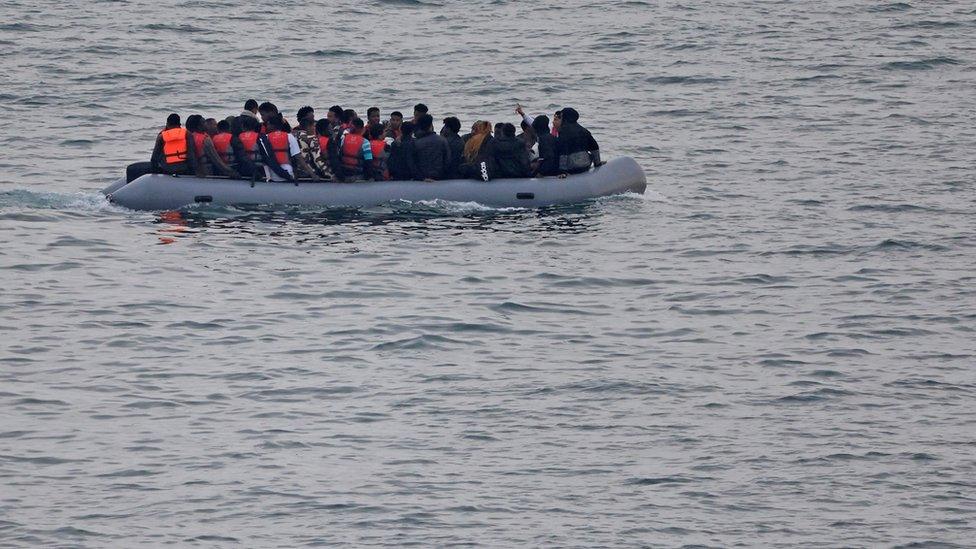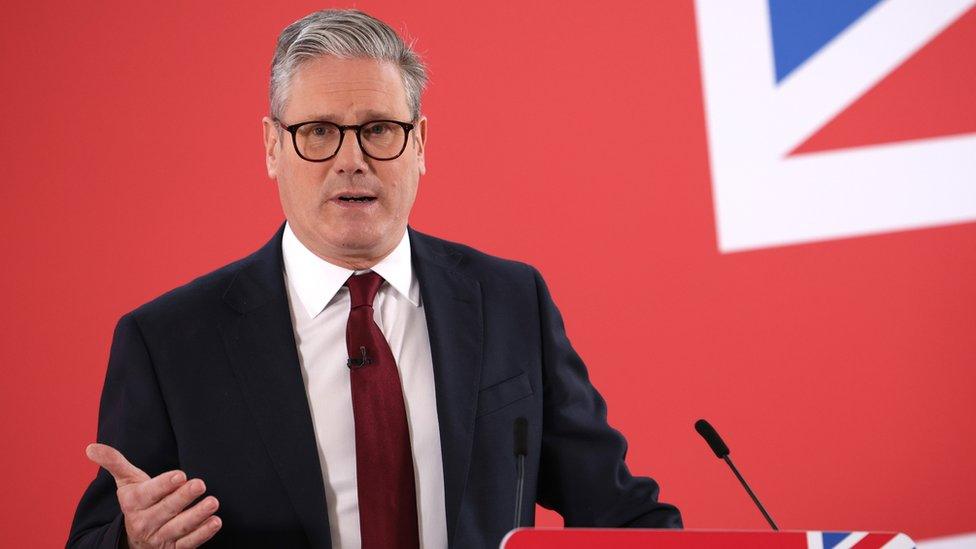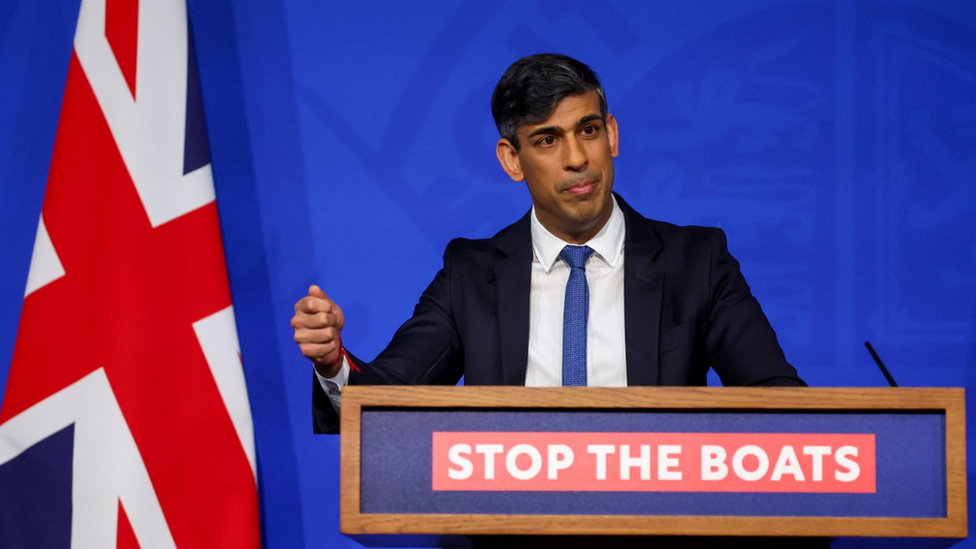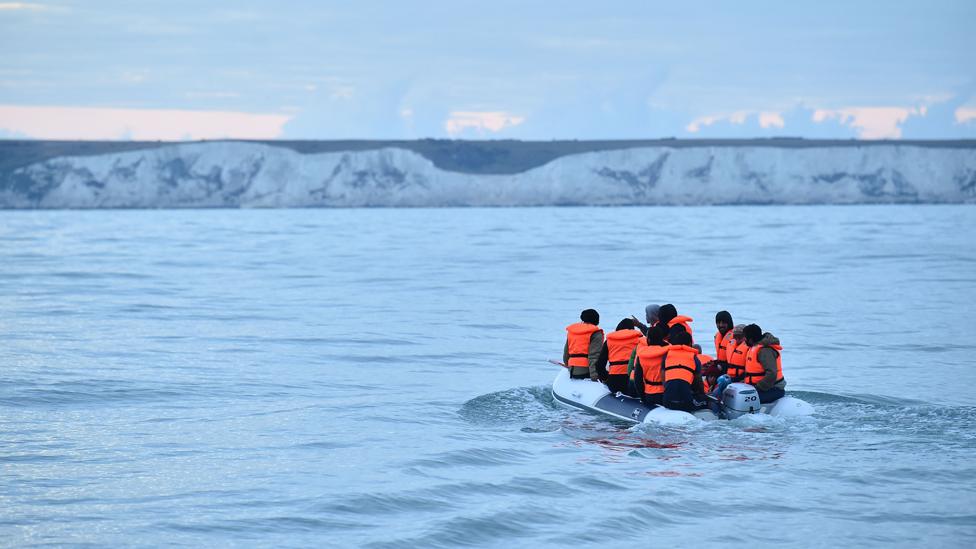Chris Mason: Sunak, Starmer and their small boats row
- Published

As of 21 April, 6,265 people had crossed the English Channel in small boats since the start of 2024
There is a single word at the heart of the political row between the prime minister and Labour leader Sir Keir Starmer when it comes to unauthorised immigration.
The word is amnesty.
The issue of people in small boats crossing the English Channel is so contested, even the terminology of the topic is disputed.
There are asylum seekers, who have applied for refugee status and are waiting for a decision. There are refugees. There is illegal immigration. Overlapping descriptions and labels, many of which provoke fury and anger.
And so to that word - amnesty. Both Rishi Sunak and Sir Keir are seeking to weaponize it, to make what they see as a negative point about their opponent.
The Labour leader accused Mr Sunak of a "Travelodge amnesty" - people who have arrived in small boats and are, in UK law, illegal immigrants. They are stuck in limbo in UK hotels at significant expense to the taxpayer.
Incidentally, Sir Keir did this while projecting a confidence I've not seen before in him.
Not just his manner on stage, but his willingness to praise a Conservative idea - the Small Boats Operational Command - strictly up to a point, which he claims he would build on. And praise a Conservative cabinet minister, Justice Secretary Alex Chalk.
It amounted, in the round, I thought, to a man with the air of an heir.
A man - after those local election results and the second defection to his party from the Conservatives in a fortnight - who might just feel closer to the prospect of becoming prime minister than ever before.
Sir Keir's label of a claimed Conservative "Travelodge amnesty" is an attempt to push back at the Tory description of Labour's plan to allow people who have arrived on small boats to apply for asylum.
Yes, you guessed it, the Conservatives describe that as an amnesty too.
Both leaders clearly see a political value in projecting an aggression on this topic and portraying their opponent as weak, even soft.
The big picture here, acknowledged by them both and illustrated in this example, is this is deeply complex and there is no off the shelf panacea on offer.
What do you do about the huge backlogs of people? How do you create deterrents to crossing the Channel? Are deterrents even possible?
What does fairness and justice look like, to people contemplating a crossing, others seeking a legal route to the UK, and the British taxpayer? Are international legal frameworks, domestic laws, or agreements with other countries up to scale of the challenge?
Returning more people not granted asylum to their country of origin is key.
BBC Verify has been looking at how this might apply to recent small boat arrivals.
Vietnamese people - 1,266 in total - and Afghans - 1,216 people - make up the top two nationalities arriving in the UK this way so far this year.
The next most common nationalities to have arrived this way between 1 January and 21 April 2024 were Iranians, Syrians and Eritreans.
Of these five countries, the government only has a returns agreement with Vietnam, so ministers in this government or any future one would have to negotiate agreements with the other four if the asylum seekers' claims were rejected.
Plus none of them currently feature on the government's list of where people can be safely returned, which poses a further potential challenge.
It is for Mr Sunak, Sir Keir and others to win arguments and gain trust on this most difficult, emotional, diplomatic and political of issues - and to grapple for solutions. As partial, long winded and expensive as they may prove to be.
- Published10 May 2024

- Published13 June 2024

